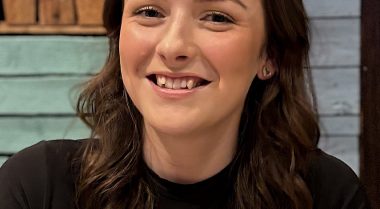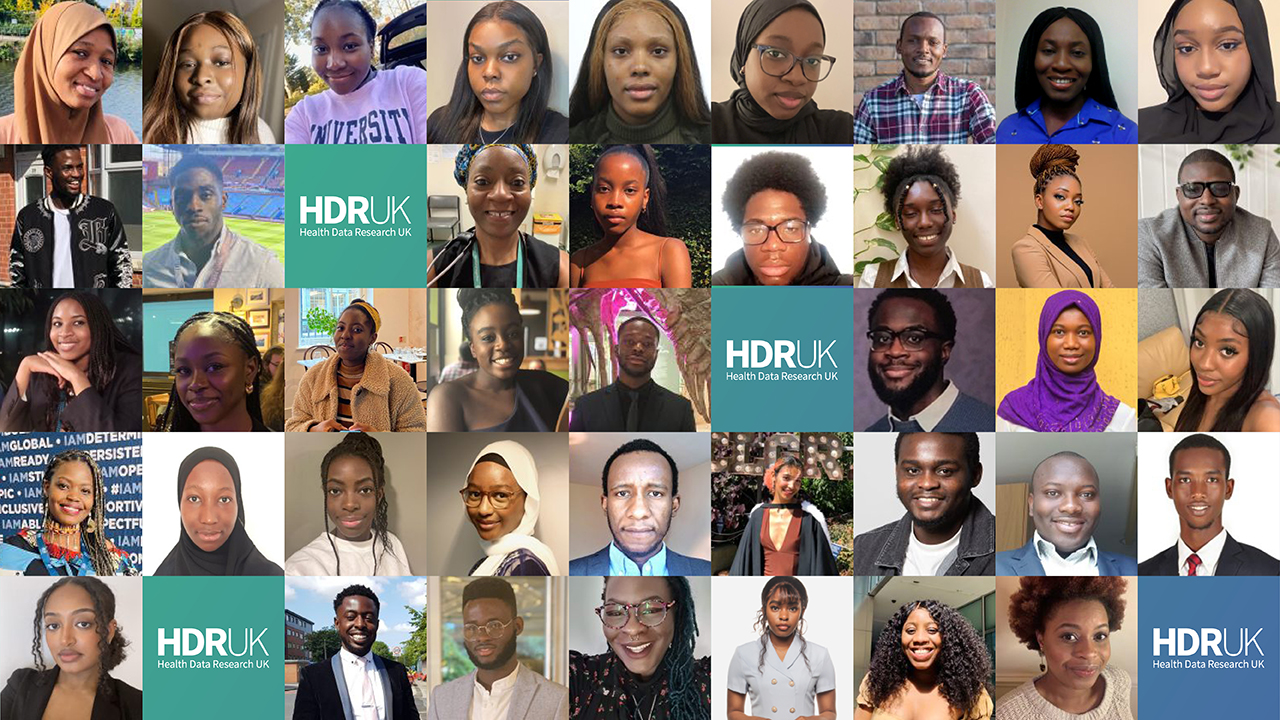International Day of Women and Girls in Science 2022: Reflections from the Health Data Research UK community
11 February 2022
To mark International Day of Women and Girls in Science, we speak to three women scientists about their experience of health data research, how persisting inequalities in the field can lead to worse health outcomes for the public, and what we as a data science community can do to improve the outlook for both our women scientists and the public.

“Women and girls represent half of the world’s population and, therefore, half of its potential. Gender equality, besides being a fundamental human right, is essential to achieve peaceful societies, with full human potential and sustainable development.” – United Nations.
Even though women have made huge gains towards increasing their representation in science in recent years, they are still significantly under-represented, both in the UK and globally. According to a report carried out by UNESCO, only 33 per cent of the world’s researchers are women, despite the fact they represent 45 and 55 per cent of students at the Bachelor’s and Master’s levels of study respectively, and 44 per cent of those enrolled in PhD programmes.
Gender equality matters in health data research. If the people who are analysing and implementing results from health data are not representative of the population, we risk transforming these inequalities into discriminatory health and social outcomes for half of the world’s population.
Health Data Research UK (HDR UK) exists to unite the UK’s health data to enable discoveries that improve people’s lives, and that includes supporting an equal and representative community of health data scientists to make this research possible. Last year, women made up 30 of the 48 data scientists trained as part of our Health Data Science Black Internship Programme. And six of nine projects newly funded as part of the HDR UK and ONS’s Data and Connectivity programme are led by women. But there’s so much more our community can do.
To celebrate International Day of Women and Girls in Science, we speak to three women scientists about their experiences in health data research, and what we as a data science community can do to improve the outlook for both our women scientists, and the public.
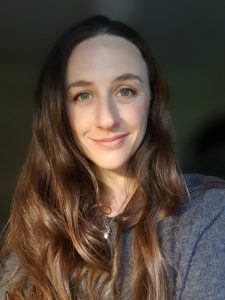
Olivia Swann, University of Edinburgh | @livvyswann
I’m a clinical academic working in paediatric infectious diseases. My underlying drive is to reduce the number of children who are suffering or dying from infectious diseases.
My PhD was mainly in wet lab science, but I also did some genetic epidemiology and taught myself how to use R. It was a steep learning curve, but now I love it. And actually, if I’d have stuck to wet lab science, I don’t think I’d be here today. I have two small children, and when I came out of my full time PhD and back into clinical work, it quickly became apparent that wet lab research was not going to be possible for me. I work four days a week, and only 20% of that time is protected for research. I have to squeeze my research around night shifts, childcare, and everything else, so having flexible, desk-based data research has been an absolute game-changer.
That doesn’t mean it’s been an easy journey. During the pandemic, I was running a paediatric analysis into COVID. We were one of the first groups to find children were not being affected badly by COVID, which was key for policy decisions such as children returning to school. When it came to presenting the findings to a group of influential researchers, I was introduced by a male academic as “Professor X’s wife”. I was mortified. I went bright red and stumbled over my words. It felt like a kick in the teeth to be defined that way. I struggle with imposter syndrome and this was a huge knock to my confidence.
I’m still trying to overcome and embrace my imposter syndrome. I know this is something that disproportionately affects women, but I’ve been lucky enough to have had help from some very strong female mentors. Their advice has been absolutely key to carrying on in the face of the microaggressions we face as women scientists. For me, I now accept imposter syndrome as a way of telling me that I am where I need to be – if I’m not feeling it, I am probably just coasting along doing easy things.
It’s so important that women persist in research, and are represented as leaders and decision makers in these fields, because inequalities in the people doing the research will inevitably lead to inequalities in the outcomes. We need to work towards a research landscape that doesn’t punish women for taking time out to have children, is understanding of the fact that their additional care responsibilities may impact their work, and is inclusive of the different mental and social barriers they may face compared to men.
I’ve just been awarded my first grant as a PI by HDR UK, using population level datasets to drill down into how much of a long-term problem COVID might be for children. And I want to make sure I use my position as an emerging group leader to keep championing other women scientists.
My advice to anyone who’s struggling would be to be open, seek out the experiences of as many people as you can, and keep asking questions. Don’t worry on your own, because we’ve all been there and we’ve done it in many different ways – one of which will be right for you. Things can change, but they won’t if you don’t look them in the eye and face them.
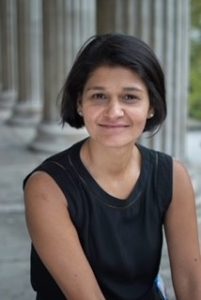
Reecha Sofat, University of Liverpool | @ReechaSofat
My research focuses on using large data sets to make medicines better– using and manipulating data to understand patterns of use and find ways to improve how the safety and efficacy of medicines.
I’ve always been interested in science. I had encouraging family and teachers who made studying medicine and later doing a PhD an easy decision. But at the points of my career when I’ve found it difficult, I’ve wondered why. Is it my gender, my race, or am I just doing something I’m not suited to? Nobody’s going to tell you the answer, and it’s impossible to understand how things might be different if you were a different person.
When I was growing up in Nairobi, and later moving to the UK as a child, these weren’t questions I had. My mindset was, ‘you work hard and you’ll get what you deserve’. Of course, the system doesn’t work like that, but I don’t know what operates underneath it. I’m not sure any of us do, but it doesn’t mean we shouldn’t try to understand it and then to change it.
It’s not just for the benefit of women scientists themselves. Having research teams who reflect the population they are working in leads to better outcomes for people. In my area of work, it’s been crucial to consider women of childbearing age or those who are breastfeeding in medicines research. Or to test drugs in individuals from different racial backgrounds whose bodies might break down chemicals differently. These issues are now coming to the fore and researchers, trialists and regulators are starting to take a closer look, which is a step in the right direction.
I would say to other women researchers that if you enjoy what you, do keep doing it. To be good at anything is hard, but it shouldn’t be so hard that you don’t have fun. Seek out support, and don’t be afraid to ask – more people want to see you succeed that you think.
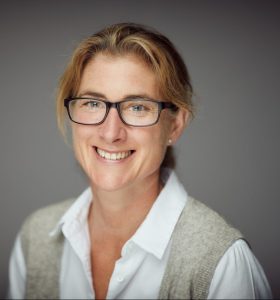
Trudie Lang, Health Data Research Global and University of Oxford | theglobalhealthnetwork.org
I’m the Research Director of Health Data Research Global – a partnership between HDR UK and The Global Health Network that is enabling stronger use of data the Global South. We’re working to support data science insights and leadership in places that aren’t currently benefitting from the huge data advances being made in the UK and other areas.
Supporting and empowering women health data scientists is a huge part of this mission. It’s shocking when you think that 90% of the world’s research benefits just 10% of the population – those who are based in the Global North. And when you cut down even further to look at the science that is led by women, it’s only a tiny fraction of the world’s research that is being shaped by women. So, we’re doing a lot of work to develop systems and research environments that enable women to lead, participate in and influence health data research.
One really positive area of work is training frontline healthcare workers like nurses, who are often women, to lead their own research. As well as being able to address the gender imbalance in research, empowering women to lead their own projects helps give them a voice. It’s a way for them to expand their careers and give them the credibility and the confidence to take on all sorts of challenges.
In data science, especially, there’s a really exciting opportunity around inviting more diversity into the field. It’s such a fast-paced area of research, that always needs novel approaches and fresh, bold thinking. Bringing in a new workface of people with different qualifications, approaches and life experiences creates a real opportunity for us to make even greater impact.
Throughout my career, I’ve often been the only woman in the team. There have been instances where, for example, I’ve been assumed to be the secretary of a group of male academics. In those situations, it’s easy to laugh it off with the group. But it can be undermining and it’s important to take those situations seriously.
I think we as women need to try to rise up in instances like these. We all talk ourselves down and apologise too much, but I want us to speak up and speak out. There’s a term called epistemic behaviour, which means that the person who speaks the loudest makes the decision. I’ve seen this time and time again with men. It’s important women feel confident, speak up and have their say.
Have your own experience to share as a woman in data science?
Join our online discussion on the Gateway Community forum to share your own experiences, motivations and advice with other women in data science.


